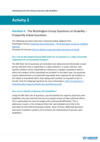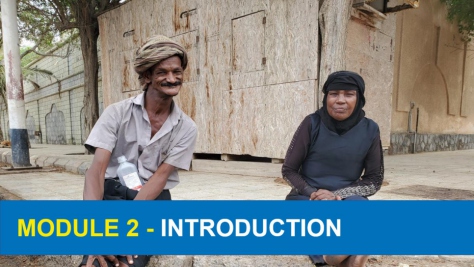About World Refugee Day 2008
On June 20, we celebrate World Refugee Day. This year, events around the world focus on the fundamental need for protection. For some, this means economic security; for others, protection is freedom from violence and persecution. On World Refugee Day, we turn our attention to the millions of refugees who live without material, social and legal protection.
Since its foundation in 1951, UNHCR has protected tens of millions of refugees. For us, protection consists of tangible improvements in the lives of forcibly displaced people - from the provision of food and shelter to support for those lacking legal status or those wishing to return to their home countries. On World Refugee Day, we commemorate this vital engagement.
Protection is also about raising awareness. We cannot protect refugees if their plight remains invisible. On World Refugee Day, we will highlight the universal nature of protection. Not only are refugees protected all around the globe, but the responsibility for protection is equally global.
Ultimately, protection is a challenge that knows no borders. Neither can it be left to a single agency to provide. On World Refugee Day, we are launching a global call for action. We want to promote engagement at the grassroots level, in local communities, workplaces and online. Only through a global network of supporters can we meet the manifold needs of protection.
How can you help?
Online social utilities provide excellent tools for advocacy. Become a fan on Facebook, support our cause and share our videos, photos and latest news with your friends. You can also find us on MySpace, YouTube and Flickr.
-

Handout 13 - Quiz
31 May 2022 The handout Quiz on collecting data for the inclusion of persons with disabilities is designed to be used during Activity 1 of Module 5 of the Disability Inclusion Facilitator's Guide. -

Handout 14 - A tool for each purpose
31 May 2022 The handout A tool for each purpose is meant to be used during Module 5, Activity 1 of the Disability Inclusion Facilitator's Guide. It introduces, through case studies, different purposes for collecting data on persons with disabilities, and what types of tools can be used for each type of purpose. -

Handout 15 - The Washington Group Questions on Disability
31 May 2022 The handout contains the Washington Group Questions for Module 5 Activity 1. -

Handout 16 - The Washington Group Short Set Questions on Disability
31 May 2022 The Handout of the Module 5 Activity 1 is used as a short check-up and it contains statements of actions that the Washington Group Short Set does and does not as a tool. -

Handout 17 - The Washington Group Questions on Disability: Frequently Asked Questions
31 May 2022 The handout for Module 5 of the Facilitator's Guide contains the frequently asked questions in relation to Washington Group Questions. -

Handout 18 - UNHCR Specific Needs Codes: Disability
31 May 2022 The UNHCR Specific Needs Codes Handout contains a table demonstrating how the Washington Group Questions have been integrated into the Specific Needs Codes. The handout is used for Activity 2 of Module 5 of the Disability Inclusion Facilitator's Guide. -

Handout 19 - Individual Cases
31 May 2022 The handout contains individual cases to be used during Module 5 Activity 3 on collecting data for the inclusion of persons with disabilities (Disability Inclusion Facilitator's Guide). -

Introduction to the Disability Inclusion Facilitator's Guide
31 May 2022 -

Video Module 2
31 May 2022

